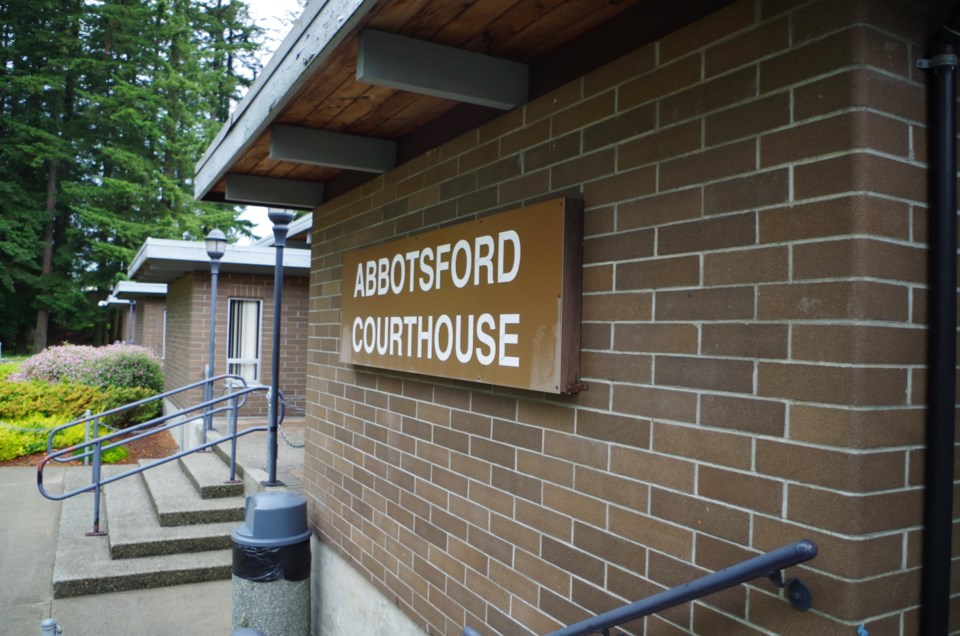A B.C. Supreme Court judge has ordered two people to pay $22,925 to a Boston Bar woman after finding they cut down trees on her property without consent.
Shelagh Margaret Prowal claimed defendants Sean Kevin Court, Trista Lynn Court, John Doe and Jane Doe had a tree faller cut five mature Douglas fir trees on her property on Oct. 9, 2021, Justice David Crerar said in his May 26 decision. He sat on the case in Abbotsford.
The defendants didn’t dispute the trees were cut on their instructions, or that the trees were located on Prowal’s property.
“They allege that the plaintiff provided consent,” Crerar said.
The defendants countersued claiming Prowal failed to maintain a stone retaining wall, which has collapsed in two areas near their shed and chicken coop, threatening those structures.
They argued the retaining wall interfered with their use and enjoyment of their property. They wanted damages and an injunction requiring Prowal to fix the wall.
Crerar said the trees were deliberately felled to fall southward on the defendants’ property. They acknowledged they cut up at least some of the timber and stored it for firewood.
The judge said relations between the neighbours were rocky from the start when the defendants bought their property in 2013 as a vacation home.
Crerar said two central witnesses were Prowal and Sean Court.
“Neither were particularly credible or reliable witnesses. Both were argumentative and evasive in answering questions: their mutual antipathy was apparent,” the judge said. “Their memories of the felling day were also incomplete and hazy.”
Sean Court testified a feller had been out to cut trees on his property and he brought Prowal into the conversation about her trees that he considered hazardous.
Crerar said Prowal “adamantly” denied she was part of the conversation, or that she was even at home when the trees were being cut.
“She testified that she did not even learn that the trees had been cut until several weeks later, when she held a bonfire hotdog roast with some of her foster children near the location of the felled trees, and noticed their absence,” Crerar said. “When she discovered that the trees were gone, she filed a police report, on Oct. 27, 2021.”
Crerar noted the defendants’ version of events suffered “multiple difficulties.”
“Given the tensions, and the rarity of communications between the neighbours, it is implausible that Mr. Court would casually call over the wall and propose or request the significant undertaking of felling five trees, in a very brief and sudden conversation,” Crerar wrote.
The judge said Prowal indicated she had an interest in how much the defendants were paying for their trees to be cut. She wanted to find out if she had received a good rate from another faller she hired to top a tree the previous year.
Crerar said Prowal acknowledged that when she saw the faller arrive in his truck in the morning, she asked someone to go and ask the feller how much he was charging per tree. That may have been misinterpreted and misremembered by Sean Court, as consent to fell the trees, the judge said.
Prowal had sought general damages of $50,000.
“While I found that the defendants had not established clearly that the plaintiff had consented, the murky evidence does not permit me to conclude that Mr. Court flagrantly and deliberately proceeded to have the trees felled,” Crerar said.
The judge awarded Prowal $19,425 in general damages, $2,000 in punitive damages, plus special damages of $1,500, for a total of $22,925 against the named defendants.
Prowal had also sought an injunction against the defendants from trespassing on her land.
“Both defendants undertook to the court that they will not step foot on the plaintiff’s property ever again: they have no desire to do so, and given this litigation, it would be madness to do so,” the judge said. “The defendants have gone one step further: they have now listed their property for sale.”
He dismissed the defendants’ counterclaim.


